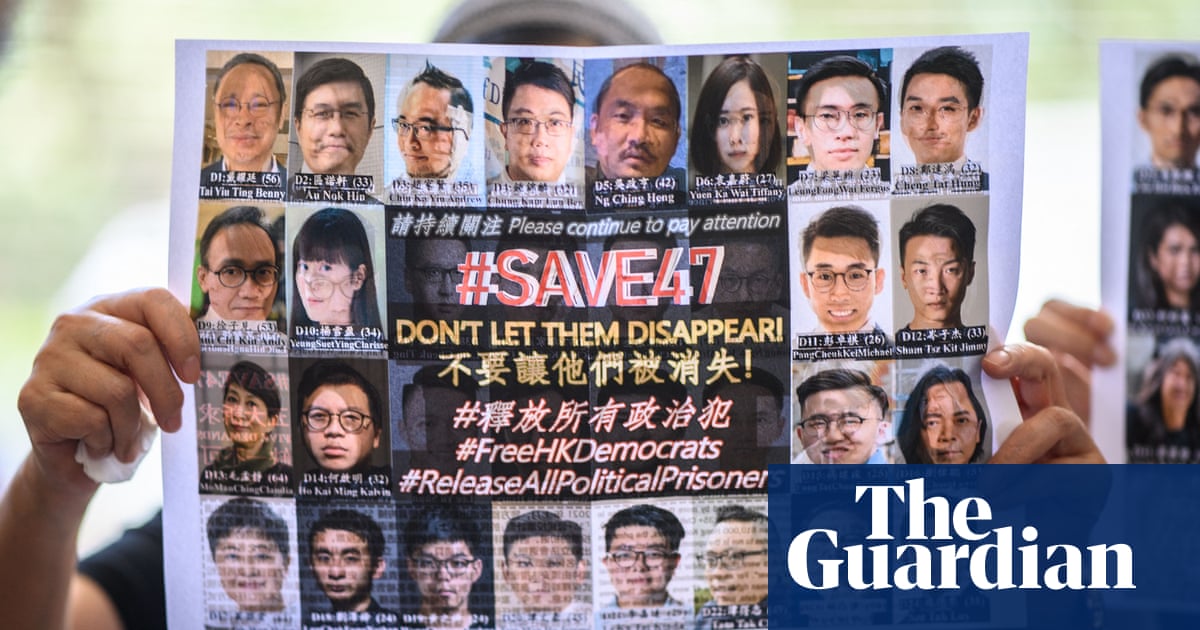A group of pro-democracy lawmakers jailed in alandmark Hong Kong national security trialhave been freed after spending four years in prison.
Local media had reported that the group, Claudia Mo, Kwok Ka-ki, Jeremy Tam and Gary Fan, would be freed on Tuesday from three separate prisons acrossHong Kong.
A Reuters witness outside Stanley prison, where Kwok and Tam were held, saw several vehicles leave just before dawn. A police officer told reporters they had left. Vehicles were also seen leaving the more remote Shek Pik prison on Lantau Island.
The lawmakers were part of a group that became known as theHong Kong 47, dozens of prominent pro-democracy figures jailed in the territory’s largest national security trial, after a prosecution that has been widely criticised as politically motivated.
Sincelarge and sustained pro-democracy protestserupted in Hong Kong for most of 2019, China has cracked down on the democratic opposition as well as liberal civil society and media outlets under sweeping national security laws.
The 47 pro-democracy campaigners were arrested and charged in early 2021 with conspiracy to commit subversion under aBeijing-imposed national security lawwhich carried sentences of up to life in prison.
Forty-five of these were convicted after a marathon trial, with sentences of up to 10 years. Only two were acquitted. Mo, Tam, Kwok and Fan, who got the shortest terms, had their sentences reduced after pleading guilty. They were arrested over their roles in an unofficial primary election.
During the trial, prosecutors said the activists aimed to paralyse Hong Kong’s government and force the city’s leader to resign by aiming to win a legislative majority and using it to block government budgets indiscriminately. The judges said in their verdict that the activists’ plans to effect change through the unofficial primary would have undermined the government’s authority and created a constitutional crisis.
The case involved democracy advocates across the spectrum. They include legal scholar Benny Tai, who got a 10-year prison term, and former student leader Joshua Wong, who has to serve four years and eight months.
Critics said their convictions illustrated how authorities crushed dissent after massive anti-government protests in 2019, alongside media crackdowns and reduced public choice in elections. The drastic political changes reflect that the western-style civil liberties Beijing promised to retain in the former British colony for 50 years when it returned toChinain 1997 were shrinking, they said.
Beijing and Hong Kong governments insisted the national security law was necessary for the city’s stability. China defended the judicial decisions, despite criticism from foreign governments.
